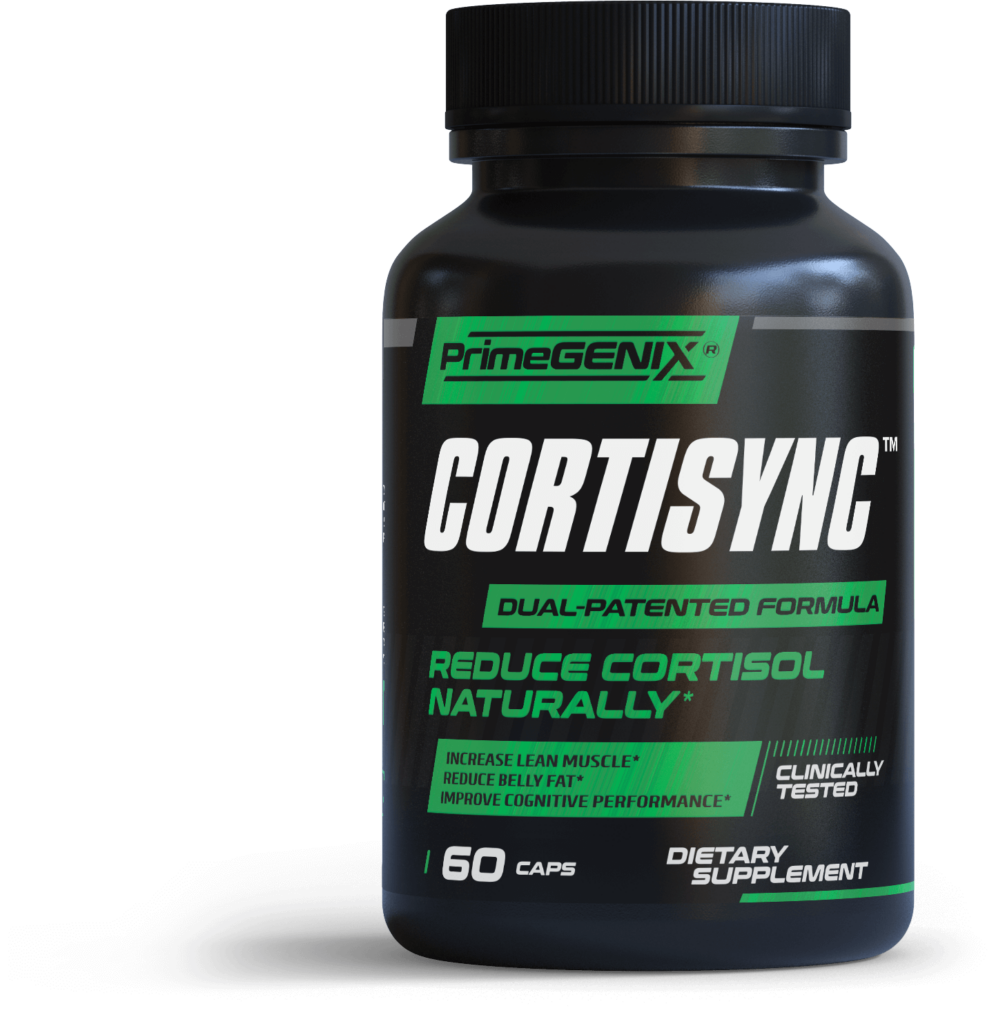Let’s talk about something that might not be on your radar when you’re striving to hit those PRs: stress. Yeah, it’s not the most exciting topic, but trust me, it can significantly impact your gains and overall health.
Stress isn’t just about feeling overwhelmed at work or dealing with annoying traffic jams. It’s a silent killer wreaking havoc on your body. There’s a sneaky hormone called cortisol that, although it probably sounds like some fancy scientific jargon, is basically our bodies’ built-in stress indicator.
When curveballs get thrown your way, cortisol steps up to the plate, priming your body for action. But too much cortisol for too long can spell disaster for your gains and your health in general.
I’m not just talking about chronic illnesses (though we’ll get into that, too). I’m talking about how prolonged elevated cortisol levels can mess with your workouts, recovery, and even your enthusiasm for going to the gym.
So, grab your protein shake, sit back, and learn how stress, cortisol, and chronic illness are all connected. We’ll also share practical tips to keep your cortisol levels in check.
Stay with us. Your gains are at stake.
Cortisol: The Body’s Survival Toolkit
Often dubbed the “stress hormone,” cortisol is like your body’s private alarm system. It’s produced by the adrenal glands, those tiny powerhouses located just above the kidneys.
If you have a close encounter with a grizzly bear or a deadline hanging over your head, your body goes into fight-or-flight mode, with cortisol at the helm. Cortisol is part of your body’s survival toolkit. It gets you ready to face whatever challenges come your way.
So, what does cortisol do?
When cortisol kicks into gear, your heart starts pounding, muscles tense up, and your senses go into overdrive. Cortisol helps regulate your blood pressure, boost your energy levels, and sharpen your focus, all in the name of helping you tackle the threat in front of you.
Here’s where it gets tricky. In small doses, cortisol is your friend, helping you power through a challenging workout or knock a work presentation out of the park. But when cortisol levels skyrocket, and stress becomes chronic, that’s when the trouble starts.
Elevated cortisol levels over a prolonged period can lead to a laundry list of health issues we’ll explore later. While cortisol is necessary for survival, too much can be a real buzzkill for your health and well-being. Trust me, a little goes a long way.
The Stress-Cortisol Connection
Stress and cortisol go hand in hand, like two peas in a pod. Your body goes into overdrive when you’re stressed, whether from a heated argument or the everyday pressures of life.
The brain sends signals to the adrenal glands to release cortisol into the bloodstream. This surge of cortisol is like flipping a switch, putting your body into a high-alert mode to face the stress head-on.
While this is helpful when you need to power through stressful moments, problems arise when stress becomes a constant companion. Whether due to work pressures, relationship woes, or financial struggles, when you’re stuck in a perpetual state of stress, cortisol levels can remain elevated for extended periods.
Chronic exposure to high levels of cortisol can throw the body out of whack, prompting a host of health issues. So, while cortisol is an essential hormone for helping you navigate life’s ups and downs, managing stress and keeping cortisol levels in check is crucial for maintaining your physical and mental health in the long run.
Prolonged Cortisol Elevation: How Stress Hijacks Your Health
Extended elevation of cortisol levels can adversely affect nearly every system in your body, from your cardiovascular system to your immune system. No organ or process is spared from the effects of chronic stress.
Let’s look at the adverse impact of prolonged elevated cortisol levels:
- Cardiovascular Health: Chronic stress is associated with an increased risk of hypertension (high blood pressure), hardening of the arteries, heart disease, heart attacks, and strokes.
- Metabolic Health: Elevated cortisol levels can lead to insulin resistance, resulting in high blood sugar levels and an increased risk of type 2 diabetes.
- Immune Health: Prolonged stress suppresses the immune response, leaving you more susceptible to infections, illness, and autoimmune conditions like rheumatoid arthritis, lupus, and multiple sclerosis.
- Digestive Health: Persistent elevated cortisol levels can increase appetite, contributing to weight gain and obesity, and impair digestive function, leading to gastrointestinal issues.
- Mental Health: Cortisol can disrupt neurotransmitter balance in the brain, impairing cognitive function and contributing to mood disorders, burnout, and emotional exhaustion.
Elevated cortisol levels can profoundly affect various aspects of your physical and mental health.
Now, let’s examine how chronic stress and prolonged periods of high cortisol levels impact exercise performance and outcomes.

How Cortisol Affects Muscle Growth and Recovery
Cortisol can significantly impact exercise gains. Elevated levels can lead to muscle protein breakdown, inhibiting the synthesis of new muscle tissue and making it difficult for muscles to repair and grow optimally.
Cortisol can interfere with storing glycogen, muscles’ primary fuel source during exercise, resulting in decreased energy levels and diminished workout performance.
While it is often viewed as the nemesis of gains, cortisol isn’t inherently bad for muscle growth and recovery. It helps regulate inflammation and can provide energy during exercise. Maintaining a healthy balance prevents cortisol levels from hindering your gym progress.
How Stress Affects Workout Performance
Persistently elevated cortisol levels can negatively impact your ability to perform at your best in the gym. High cortisol levels can reduce energy levels, impair cognitive function, and diminish motivation, making pushing through tough workouts, maintaining focus, and achieving your fitness goals harder.
When cortisol levels spike, your body goes into a state of heightened alertness and readiness for action. While this can be beneficial in short bursts, chronic stress can lead to increased muscle soreness and longer recovery times between workouts due to inadequate muscle recovery and repair.
Managing stress effectively is essential for optimizing workout performance and maximizing gains. Next, we unveil some stress management strategies to help you live a longer, healthier life.
5 Strategies for Managing Stress Before and After Workouts
Managing stress is more than just keeping your cool in tough situations. It is essential for optimizing exercise performance and promoting overall well-being.
By incorporating stress-reduction techniques, you can create a more balanced and enjoyable workout experience while minimizing the adverse effects of stress and cortisol.
#1 Try Mindfulness Techniques
One effective way to manage stress is to incorporate mindfulness techniques into your workout routine. Before starting your session, take a few moments to focus on the present moment and center yourself. Practice deep breathing exercises or guided meditation to calm your mind.
Cultivating a mindful mindset during training helps lower cortisol levels, reduce stress, and enhance your workout experience.
#2 Adopt a Realistic Mindset
Setting realistic expectations for your workouts helps reduce stress and cortisol levels. Rather than pressure yourself to achieve unrealistic goals or compare yourself to others, focus on progressing at your own pace. Celebrate small victories and milestones to enjoy your workouts more fully.
Adopting a positive and realistic mindset alleviates stress, allowing you to perform at your peak and achieve the desired results in the gym.
#3 Practice Progressive Muscle Relaxation
Progressive muscle relaxation is a beneficial technique for reducing overall stress and cortisol levels in the body. Systematically tensing and relaxing different muscle groups releases muscle tension pre-workout.
Incorporating progressive muscle relaxation into your pre-workout routine or as part of your cool-down promotes relaxation and reduces muscle tension.
#4 Prioritize Recovery and Rest
Rest and recovery are vital for managing stress and achieving your fitness goals. Incorporate rest days into your workout schedule, giving your body time to recover and recharge. Sufficient sleep supports optimal hormone balance and muscle recovery.
Including relaxation techniques like foam rolling, stretching, or yoga can promote relaxation and reduce cortisol levels after intense workouts.
#5 Pay Attention to Your Body’s Signals
One of the most effective strategies for managing stress is to listen to and honor your body’s signals. Pay attention to how your body feels during workouts, adjusting intensity and duration accordingly. Pushing through intense workouts when your body is already under stress can increase the risk of injury or burnout.
Scaling back your workout or taking a rest day when you feel excessively stressed or tired helps reduce cortisol levels.

Harness the Power of Stress Management for Better Health, Gains, and Performance
As we’ve explored, the interplay between stress and cortisol can impact every aspect of our health and well-being. Stress management isn’t just a luxury. It’s imperative to prioritize stress reduction in your life and fitness regimen to maintain your health, prevent chronic illness, and improve your gains.
Adopting healthy coping mechanisms and managing stress is essential to protect yourself from harmful effects. As you strive for peak performance, consider natural solutions like PrimeGENIX® Cortisync to give you an extra boost as you work to restore hormonal balance.
Let stress take a backseat as you navigate the path to optimal health and performance.

